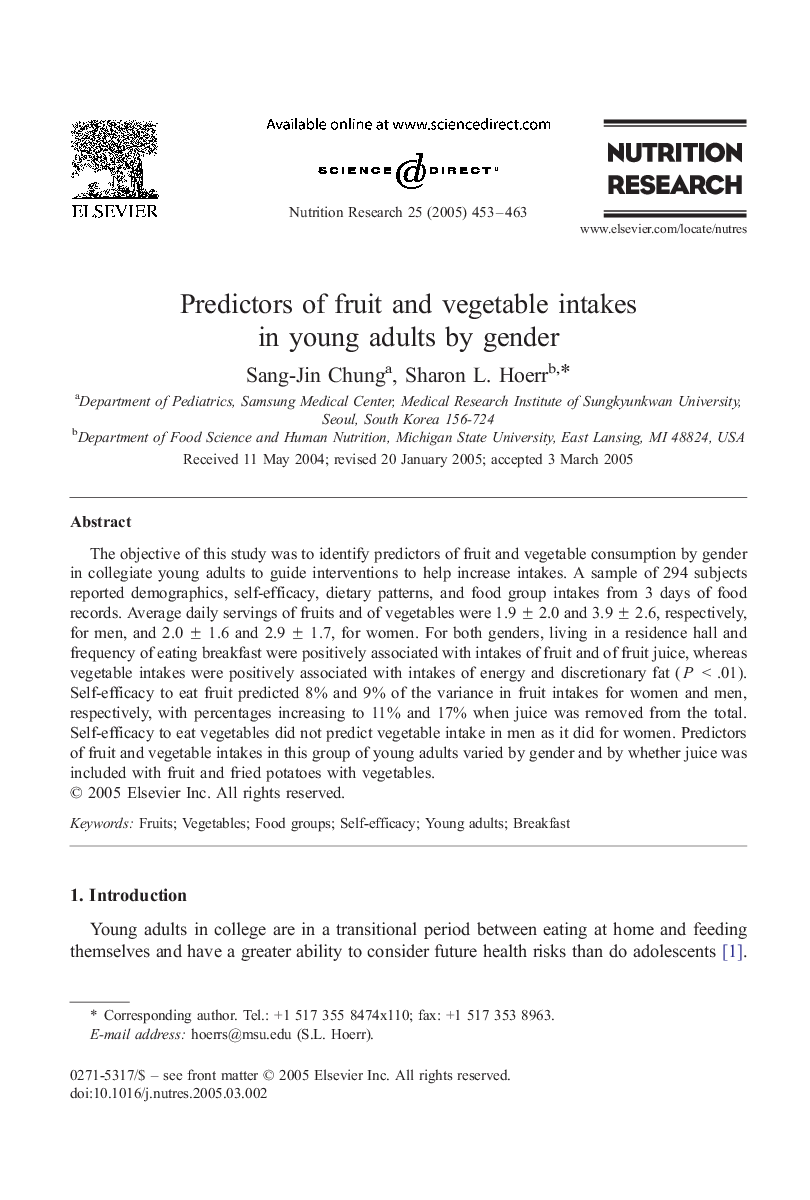| Article ID | Journal | Published Year | Pages | File Type |
|---|---|---|---|---|
| 9119014 | Nutrition Research | 2005 | 11 Pages |
Abstract
The objective of this study was to identify predictors of fruit and vegetable consumption by gender in collegiate young adults to guide interventions to help increase intakes. A sample of 294 subjects reported demographics, self-efficacy, dietary patterns, and food group intakes from 3 days of food records. Average daily servings of fruits and of vegetables were 1.9 ± 2.0 and 3.9 ± 2.6, respectively, for men, and 2.0 ± 1.6 and 2.9 ± 1.7, for women. For both genders, living in a residence hall and frequency of eating breakfast were positively associated with intakes of fruit and of fruit juice, whereas vegetable intakes were positively associated with intakes of energy and discretionary fat (P < .01). Self-efficacy to eat fruit predicted 8% and 9% of the variance in fruit intakes for women and men, respectively, with percentages increasing to 11% and 17% when juice was removed from the total. Self-efficacy to eat vegetables did not predict vegetable intake in men as it did for women. Predictors of fruit and vegetable intakes in this group of young adults varied by gender and by whether juice was included with fruit and fried potatoes with vegetables.
Related Topics
Life Sciences
Biochemistry, Genetics and Molecular Biology
Endocrinology
Authors
Sang-Jin Chung, Sharon L. Hoerr,
